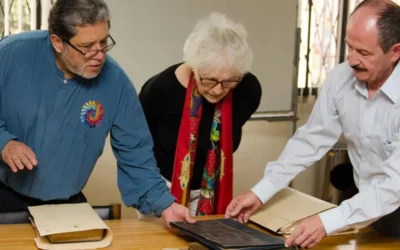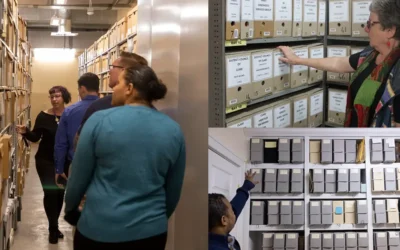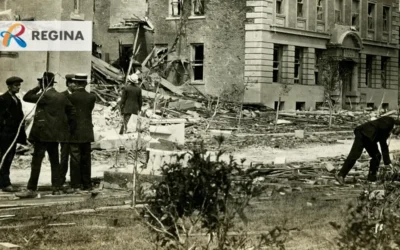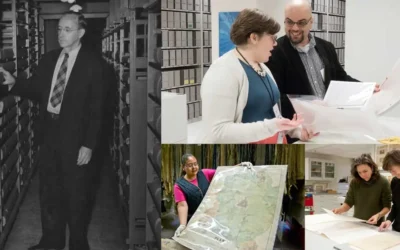Archival Projects: Evaluating and Acknowledging Performance
Margot Note
This conflict arises if there’s a lack of clear priorities in their everyday duties and their project assignments. The best way of ensuring that this stressful situation doesn’t occur is for team members to clarify project requirements and agree on boundaries. Sometimes a meeting with the team member, the project manager, and the functional manager can lead to an agreement on a set of boundaries for the project work.
Leading by Motivation
Motivating team members on an archival project can be tricky. Many project managers lack the authority to hire, fire, or reprimand team members. In many cases, team members have been assigned without the project manager’s involvement. However, archival project managers are still accountable for managing the team to achieve project goals. Since project managers may not have much position power, they need to rely on motivation and influence.
There are interdependencies among team members, and they know that every person is accountable for his or her success. Therefore, if a team member is not performing well, another team member may challenge them. In some cases, individuals may need some help; in other instances, their performance may be unacceptable. Either way, effective teams hold each other accountable in a respectful manner.
Archival project managers seek out team members equally, not just the people who are easiest to find or those with whom project managers are already friendly. Archival project managers should be approachable to everyone. They should offer spontaneous recognition. If they see something good, they compliment the team member. If they see activities that trouble them, they talk to the team member in private at a later time.
Trusting the Archival Project Team
Team members trust each other. Each relies on other team members to get the job done. If there are performance issues or differences in style, team members should feel comfortable enough to address variances in opinions, values, and attitudes. High-performing teams find ways to handle differences with methods that increase trust between members.
Top performing teams show a high level of energy and achievement. They spend their time aimed at the target, are clear about what the objectives and goals are, and are focused on meeting them. Achievement fuels the energy and enthusiasm of the team. As the team stays focused on achieving the goal together, their performance improves, and their enthusiasm grows.
Inspiring and Recognizing Project Team Members
Archival project managers should focus on people’s strengths rather than their weaknesses, and find a quality that they can respect in each person on the team. People enjoy their work more and work harder when they are surrounded by others who appreciate their efforts. When someone does something well, project managers tell the person, the person’s boss, and other team members that they appreciate the effort and its results.
Recognizing good performance confirms the value of their work to team members. Mention the quality of the results that he or she accomplished as well as the effort that he or she invested. Be specific and tell the person exactly what he did or produced that’s appreciated. Provide feedback promptly; do not wait weeks or months before recognizing great work.
Margot Note
Margot Note, archivist and records manager, writes for Lucidea, provider of ArchivEra, archive collections management for today’s challenges and tomorrow’s. See more of Margot’s advice on running successful archival projects.
Similar Posts
Navigating Selection in Archival Practice
The archival selection process is far from straightforward, given the limitations of long-term preservation and ongoing accessibility challenges.
Responsible Stewardship in Archival Practice
Responsible stewardship is a philosophy that guides the actions and decisions of archivists in safeguarding collective memory.
A Modern View of a City’s History via ArchivEra
Brief success story on City of Regina Archives’ use of ArchivEra to manage collections of legal, historical, administrative or financial significance
Stewards of the Past, Guardians of the Future
Archival preservation bridges the past and future, allowing the voices and stories of bygone eras to resonate with contemporary and future audiences.
Hosting service
Enjoy all of the benefits of your Lucidea solution with secure, reliable, stress free hosting
Programs & incentives
No matter your size or budget, we’ve got you covered, today and tomorrow




Leave a Comment
Comments are reviewed and must adhere to our comments policy.
0 Comments